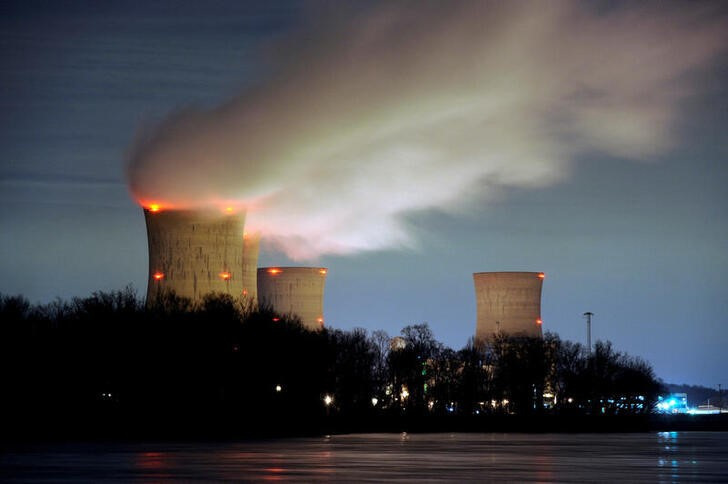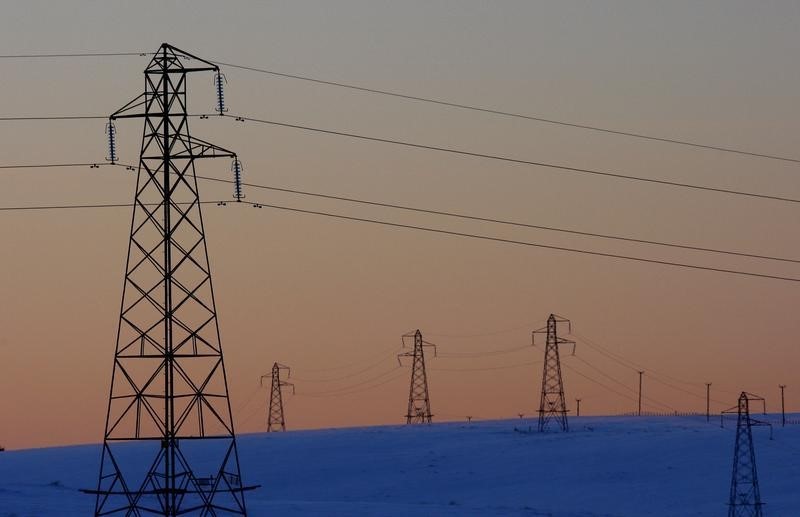(Refiles to correct typo in ‘companies’ in paragraph three)
(Reuters) -Constellation Energy and Microsoft (NASDAQ:) have signed an energy deal to help revive a unit at Pennsylvania’s Three Mile Island nuclear power plant in what would be the first-ever restart of its kind, the companies said on Friday.
However, key regulatory permits for the plant’s new life have not yet been filed, regulators say.
Big tech has led to a sudden increase in U.S. demand for electricity to power data centers needed to expand technologies like artificial intelligence and cloud computing. Nuclear power, which is virtually carbon-free and widely considered more reliable than energy sources like solar and wind, has become a popular option for tech companies with uninterrupted energy needs and climate promises.
“Nuclear power plants are the only energy sources that can consistently deliver on this promise,” Constellation CEO Joe Dominguez said in a statement.
Shares of Constellation rose more than 20% to $251.42 by early afternoon and are up more than 100% year to date.
Power from the plant would be used to offset the electricity consumption of Microsoft’s data center, the companies said.
A relaunch of Three Mile Island, where a separate unit partially collapsed in 1979 in one of the largest industrial accidents in the nation’s history, still requires federal, state and local approvals.
Constellation must still apply to federal nuclear regulators to restart the plant.
“It will be up to Constellation to explain the reasons for justifying a restart, so we are prepared to engage with the company on next steps,” said Scott Burnell, spokesman for the Nuclear Regulatory Commission (NRC).
Constellation said it expected the NRC review process to be completed by 2027.
BILLION DOLLARS BET
The deal would allow for a revival of Unit 1 of the five-decade-old Pennsylvania facility, which was decommissioned in 2019 for economic reasons. Unit 2, which had the meltdown, will not be restarted.
Constellation plans to spend about $1.6 billion to revive the factory, which is expected to come online in 2028.
Reuters first reported on the possible restart in July.
Sources told Reuters at the time that Constellation hoped it would get federal support for Three Mile Island, similar to what was given to the Palisades Nuclear Generating Station, which received a $1.5 billion conditional loan for a restart from the government. Biden.
Under the Constellation-Microsoft deal, Microsoft will purchase energy from the restarted factory for a period of twenty years. The Three Mile Island unit will provide 835 megawatts of electricity, enough to power approximately 700,000 homes.
A restart is expected to be a challenge, but as energy demand rises, the virtually carbon-free electricity source is receiving renewed support from technology companies.
“This agreement is an important milestone in Microsoft’s efforts to decarbonize the electric grid, supporting our commitment to becoming carbon negative,” Bobby Hollis, vice president of energy at Microsoft, said in a statement.
Microsoft has also signed a power purchase agreement with Washington state fusion company Helion, which says the plant will be online in 2028, much sooner than many scientists say fusion will become commercial.
Major tech executives, including ChatGPT developer OpenAI CEO Sam Altman and Microsoft co-founder Bill Gates, have touted nuclear power as a solution to the growing energy needs of data centers.
Altman has backed and chairs nuclear power startup Oklo, which went public via blank check in May, while TerraPower — a startup Gates co-founded — broke ground on a nuclear power plant in June.
Nuclear power plants produced about 18.6% of total electricity in the U.S. last year, according to data from the Energy Information Administration.

The power supply agreements with AI data centers are also coming under increasing scrutiny. A similar deal between Talen Energy and Amazon (NASDAQ:) signed earlier this year has been challenged by a group of electric utilities who say it could increase costs for customers or hamper the reliability of the power grid.
Financial details of the deal between Microsoft and Constellation were not disclosed. The companies declined to provide more details about the agreement.


